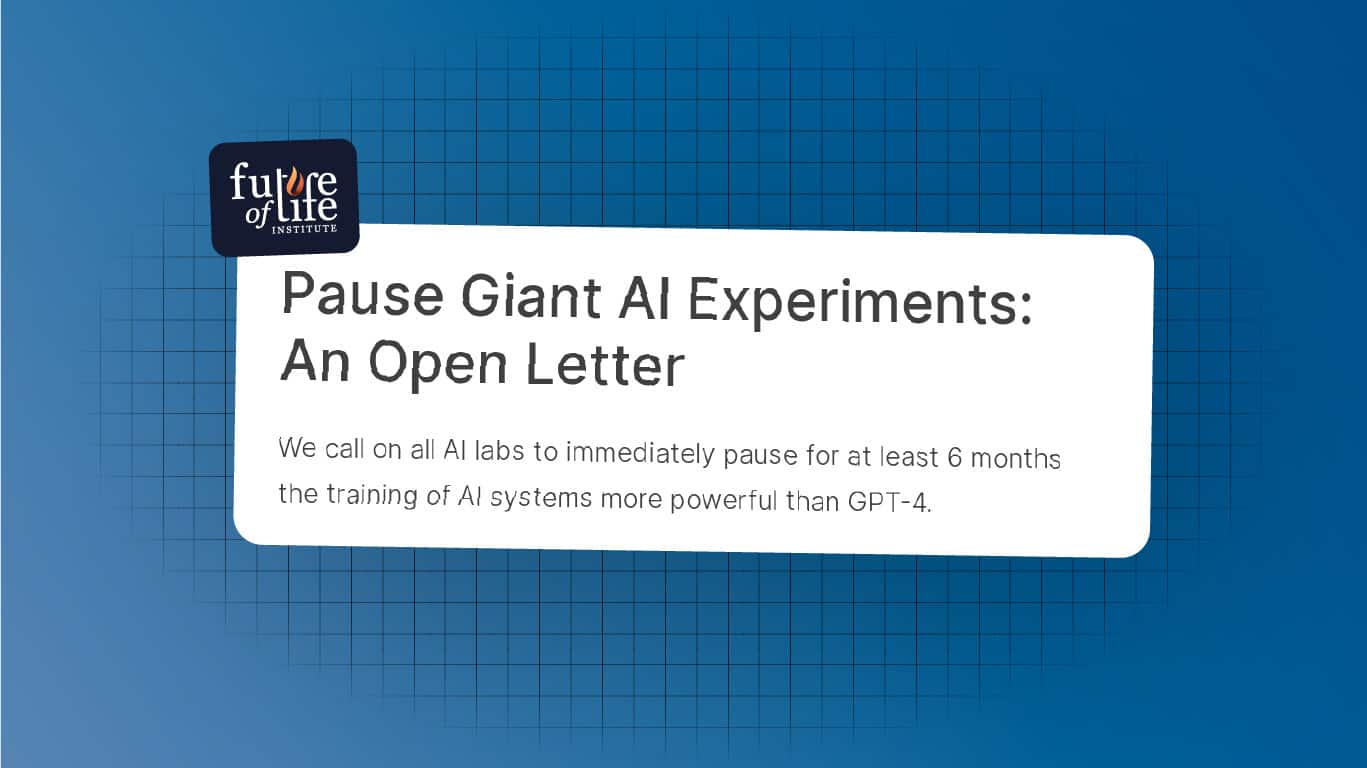- Emergence
- Posts
- Is It Time to Hit Pause on Massive AI Experiments?
Is It Time to Hit Pause on Massive AI Experiments?
Thoughts on balancing the Risks and Rewards of AI Development
Context
Artificial Intelligence (AI) has been a topic of intense interest and debate over the last few days, with many experts expressing concern about the potential risks of uncontrolled and rapidly advancing AI technology. The latest development in this ongoing discussion is the recent open letter calling for a pause on the training of AI systems more powerful than GPT-4.
The letter, which has already been signed by over 1,000 experts in the AI community, argues that the rapid development of increasingly powerful AI systems poses significant risks to society and humanity as a whole. The signatories call for a six-month pause in the training of AI systems beyond the current state-of-the-art, during which time safety protocols for advanced AI design and development can be developed and implemented.
The open letter emphasizes the need for caution in the development and deployment of powerful AI systems that could have unintended and potentially harmful consequences. The signatories argue that AI systems should be aligned with human values and goals, and that they should be controlled and managed in a way that minimizes the risk of unintended consequences.
The call for a pause on the development of powerful AI systems is not new. Similar concerns have been raised by other experts in the AI community, including the co-founder of DeepMind, Demis Hassabis, and the founder of SpaceX and Tesla, Elon Musk. However, the open letter represents a significant escalation in the debate over the risks and benefits of AI technology.
Criticisms
There are several criticisms that have been formulated against the open letter calling for a pause on the development of AI systems more powerful than GPT-4. Some critics argue that a pause would be ineffective and could stifle innovation and competition among researchers and institutions. Others suggest that the language used in the letter is alarmist and may contribute to public misunderstanding and fear of AI technology.
Some experts believe that the focus should be on promoting transparency, accountability, and ethical responsibility in AI development and deployment, rather than imposing a blanket ban on the development of more capable AI systems. Finally, some critics argue that the letter does not offer specific policy recommendations or actionable solutions to address the risks and benefits of AI technology.
Yann LeCun, a prominent AI researcher, drew a comparison between the open letter and the Catholic Church's moratorium on the printing press. He suggested that while technology's development can bring negative consequences, it can also be a source of positive change. LeCun cited the example of printed books, which caused religious conflicts in Europe but also facilitated the Enlightenment and the spread of education, science, and democracy. Additionally, he noted that the Ottoman empire's prohibition of printed books contributed to its intellectual decline. Overall, LeCun appeared to advocate that technology's benefits outweigh its risks, as long as its development adheres to principles of accountability and responsibility.
Expectations
The open letter has sparked debate and garnered attention from prominent figures in the AI community. However, it is mostly ineffective and will not lead to any pause or moratorium. The coordination necessary to enforce such a pause is unlikely to occur and the risks associated with powerful AI systems may still arise regardless of a temporary halt in their development.
There's an overly pessimistic discourse on AI models, driven by exaggerated risk assessments.
While it is important to be mindful of the potential risks of powerful AI systems, it is equally important to recognize their potential benefits. AI models have already revolutionized fields such as image recognition, natural language processing, and drug discovery. They have the potential to accelerate progress in scientific research and enable new applications that were previously impossible.
Rather than focusing solely on the risks, it is important to have a balanced and nuanced discussion about the potential impact of machine learning. This includes considering ethical and societal implications, as well as developing regulatory frameworks that promote responsible and transparent use of these technologies. By doing so, we can harness the full potential of machine learning to address the challenges facing humanity today.
